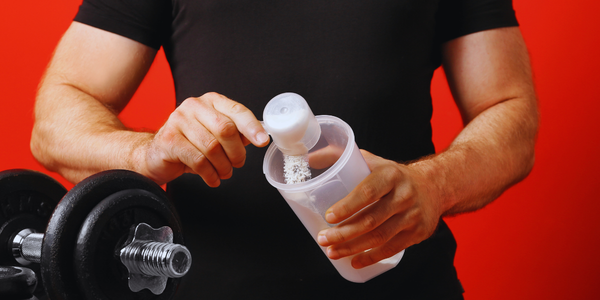Effective Ways to Fight Addictions on Long Island
Battling substance abuse is the hardest challenge in life. If you're searching for drug rehab on Long Island, there is hope to get past the darkness.

More than 12 percent of New York State and Long Island residents are battling some level of substance abuse. It’s a clear issue in the state that destroys families, friendships and careers. Regardless if its small or large, living a life with chemical dependency is no way to live. Recognizing that you have the problem is the first step to recovery.
The next step is asking for help from addiction professionals, and the best ones are recommended by Long Island Interventions.
The goal of Long Island Interventions is to fight the substance abuse straight on with complete addiction resources. This mobile crisis team recommends recovery advocates and counselors with extensive experience to guide addicts and alcoholics to long-term recovery.
Control Withdrawals Without RelapseDetoxing from any form of addiction is the hardest part of rehab. This is where the inner demons are brought out and wrestled first hand. Your body faces many obstacles when going through withdrawals, some of which may be deadly if not carefully treated. Especially when it comes to alcoholism, an alcohol detox on Long Island is the best way to minimize those uncomfortable alcohol withdrawal symptoms. Medically-assisted efforts are needed for many serious alcohol detoxification scenarios. Of all the substances — from heroin to crack — alcohol is one of the few addictions that could kill you when you are in detoxing phase (others are recovering from pills such as Xanax, Klonopin and Valium).
Debilitating seizures are often associated with alcohol withdrawals. Studies have stated that “alcohol withdrawal seizures are pharmacologically induced, the pathophysiologic mechanisms almost certainly are different from those of the seizures that occur in genetic and acquired epilepsies.” Treatment centers recommended by Long Island Interventions provide the proper medical assistance in preventing any fatalities and will aid the withdrawals meticulously.
Behavioral alcohol withdrawals are a more tame and common series of symptoms. The resident will feel restlessness, confused agitated and irritable. Often the person will also have hallucinations and anxiety as the alcohol withdrawals from the body. The label "functioning alcoholic" is often associated with those experiencing these symptoms.
The functioning alcoholic is dependent on alcohol to get through daily duties and work functions. This is where counselors and therapists recommended by Long Island Interventions play a critical role in controlling and guiding the resident to a clearer state of mind.
The Path to Inpatient RehabSubstance abuse is a rapidly growing epidemic in the state and most cases strongly require inpatient treatment. Finding a drug rehab on Long Island is not easy when you don’t know where to look. Long Island Interventions are at the forefront in providing the proper inpatient rehab and solutions.
Substance abuse is a rapidly growing epidemic in the state and most cases strongly require inpatient treatment. Finding a drug rehab on Long Island is not easy when you don’t know where to look. Long Island Interventions is at the forefront in providing the proper guidance and support for recovery.
Years of research and experience at the facility will give residential inpatients the proper treatment, recording one of the highest success rates with long-term recovery.
Residents of a drug treatment program are required remain from 28 to 90 days — more severe cases require nearly six months of rehab. The resident will be given 24-hour assistance and monitoring. The multi-layered program will combat physical and mental hurdles with intensive counseling and therapy.
Treatment solutions provided by Long Island Interventions are personalized and treated on a case-by-case scenario. While other facilities will provide only one specific approach, Long Island Interventions cooperates with various drug rehabs, tailoring to each and every resident's needs.
There are the individual counseling, process group therapy, cognitive-behavioral therapy and dual diagnosis treatment. The center also provides holistic addiction treatment, dialectical behavioral therapy, and LGBT addiction treatment.
The goal of Long Island Interventions is to combat the substance abuse at every angle. They work with experienced counselors and therapists that find the underlying causes of addiction and tackle them it head on. The inpatient drug treatment programs take each resident by the hand and ensures they don’t relapse.
Adopt a Sober CoachRecovery programs supported by Long Island interventions provide you with an addiction therapist from the start. So where does a sober coach fit in? The sober coach acts as an in-between and plays a critical role to your journey to sobriety.
This person will lead you through the ups and downs you will experience.
Fighting addiction is a task that shouldn’t be handled alone at any point in your recovery, especially at the early stages.
A sober coach provides a personalized support assistance that goes beyond the daily meetings with therapists. These coaches will prevent the resident from becoming complacent from the day through the night.
The 'guardian angels' will harden a resident's self-control and build the willpower to fight temptation. Unlike therapists and sponsors, the sober coach is a constant companion; one that has already helped others successfully overcome addiction.
The levels of addiction vary from person to person. That will dictate how intense a coach will be for a resident. There is the recovery coach, who is there with you during the down hours between therapy and twelve-step meetings; the sober transportation coach, who provide rides to and from recovery appointments; and the sober companion, who never leaves the resident's side through the arduous journey.
Utilize the Outpatient ProgramsThe full process of recovery supported by Long Island Interventions ranges in various levels, from the first admission to the program to twelve meetings and therapy to finally engaging in an intensive outpatient rehabilitation. The intensive outpatient rehab, the final piece of the sobriety program, allows the resident to reinforce all they have learned about themselves during their time at a Long Island Interventions recommended inpatient rehab.
The IOP therapies will provide needed support for the addict to develop skills and relationships to keep the sobriety from reoccurring. The IOP therapies are flexible in maintaining an everyday life, providing morning, evening and on-site services. This is a highly-recommended step in the recovery process because it will keep the addict honest, provide them with structure and constant communication with counselors and specialists recommended by Long Island Interventions. This final part of the rehab cycle also encourages the family to be involved and will perform random drug and alcohol screenings.
As a recovered substance abuser, the temptation to relapse is always an obstacle in your life. The demons are always calling at the time. It’s learning how to handle those down moments along with happy ones. That’s why Long Island Interventions will never leave your side at any point. You are never alone not now and not ever.
Image credit: [Unsplash]
ActiveMan — Make Your Move
The Modern Guide to Men’s Health, Fitness & Lifestyle.





